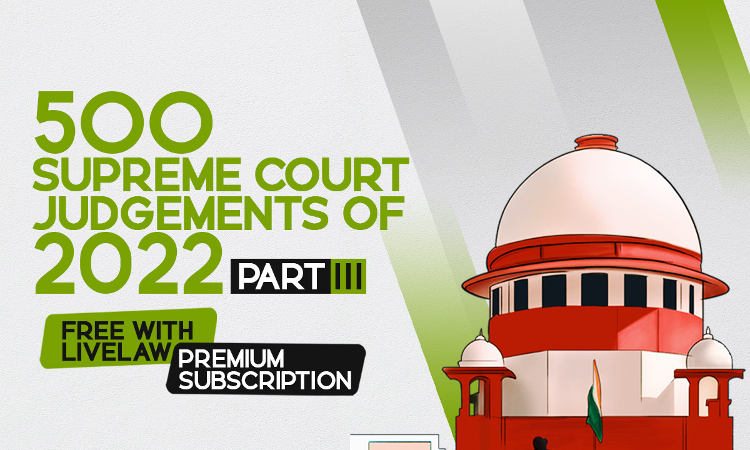500 Supreme Court LiveLaw Citations 2022 Part 3 (Citations 201 to 300)
LIVELAW NEWS NETWORK
26 Jun 2022 12:54 PM IST

Next Story
26 Jun 2022 12:54 PM IST
Constitution of India, 1950; Article 32 - Code of Criminal Procedure, 1973; Section 482 - Writ Petition, under Article 32 of the Constitution of India, for the relief(s) prayed to quash and set aside the criminal proceedings/FIR ought not to have been filed - It is not expected that the relief which can be considered by the High Court under Section 482 Cr.P.C. to be considered...
